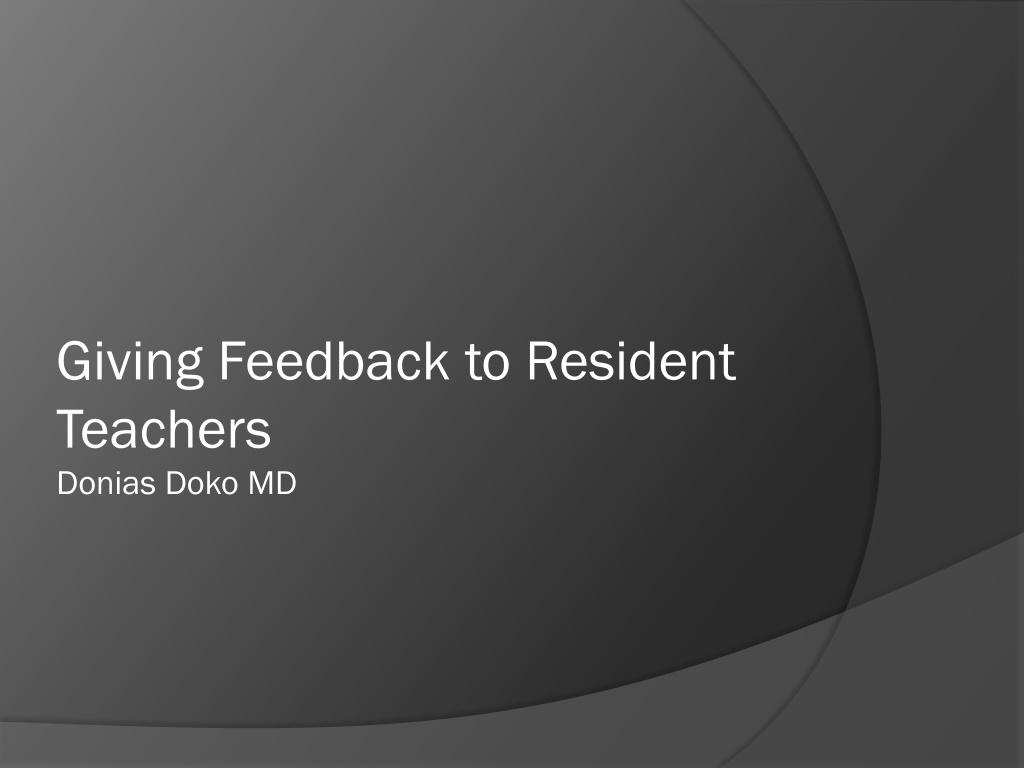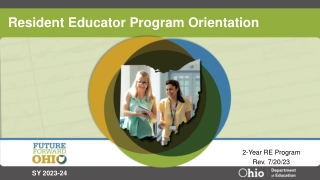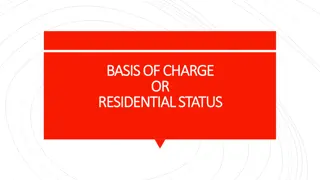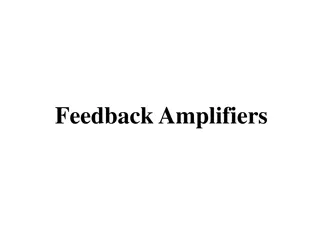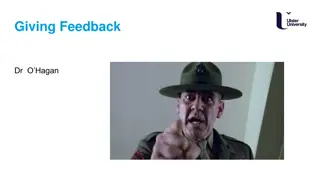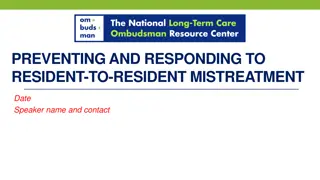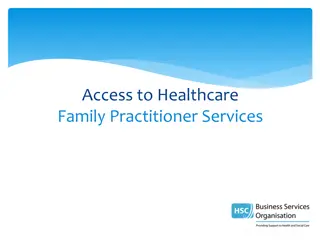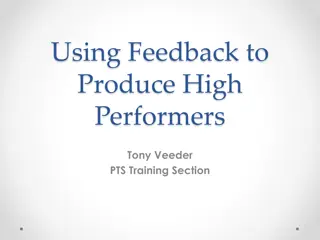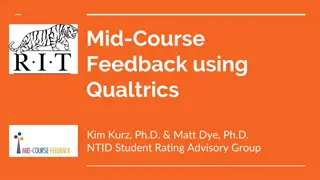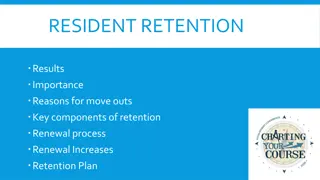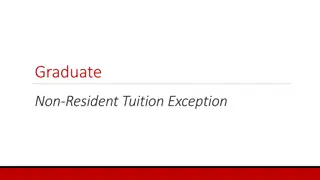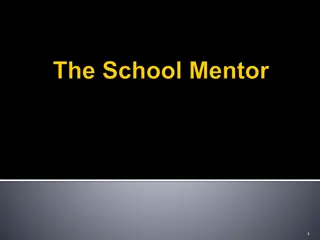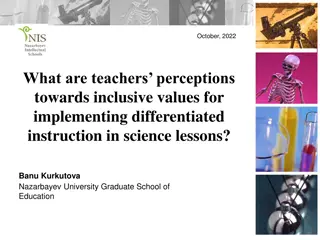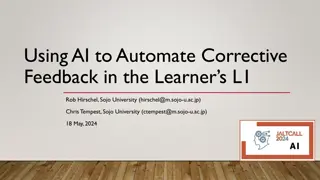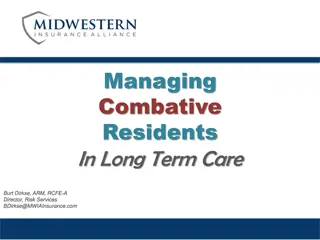Effective Feedback Strategies for Resident Teachers
Effective feedback is critical for the growth of resident teachers. This guide covers types of feedback, why it's important, what makes feedback effective, behaviorally anchored rating scales, models for giving feedback, and key tips for delivering feedback successfully.
Download Presentation

Please find below an Image/Link to download the presentation.
The content on the website is provided AS IS for your information and personal use only. It may not be sold, licensed, or shared on other websites without obtaining consent from the author.If you encounter any issues during the download, it is possible that the publisher has removed the file from their server.
You are allowed to download the files provided on this website for personal or commercial use, subject to the condition that they are used lawfully. All files are the property of their respective owners.
The content on the website is provided AS IS for your information and personal use only. It may not be sold, licensed, or shared on other websites without obtaining consent from the author.
E N D
Presentation Transcript
Giving Feedback to Resident Teachers Donias Doko MD
Types of Feedback Objective Structured Teaching Evaluations Direct Observation of Teaching with Feedback Feedback by Faculty Feedback by Learners
Why Give Feedback? Reinforce good performance Correct mistakes Growth of resident as teacher
What is Effective Feedback? SPECIFIC TIMELY BASED ON OBSERVED BEHAVIOR DOES NOT THREATEN SELF-ESTEEM
Behaviorally Anchored Rating Scales Focus on behaviors and what behavior constitutes average vs above average teaching Provide specific and actionable feedback linked to teaching competencies
The W3 Model W3: What could be done differently next time? W1: What worked Well? W2: What did not work well?
The Feedback Formula-6 Steps Ask Ask permission State State your intention Name Name the behavior Describe Describe the impact Inquire about Inquire about the learner experience Identify Identify the desired change
ARCH Model Reinforce correct behavior knowledge and attitudes Allow for Self- Assessment Correct incorrect behavior/knowledge 1 2 3 Brainstorm and collaborate to create plan Help learner with an improvement plan Develop an action plan 4 5
When you give feedback Use an appropriate location Ensure that the learner is ready to receive feedback Deliver feedback close to the time of observed behavior Establish mutually agreed upon goals Elicit the learner s thoughts and feelings
When you give feedback Reflect on observed behaviors Relate feedback to specific behaviors Be aware of verbal and nonverbal responses Avoid vague or general comments Focus on changes within the learner s control Seek the learner s interpretation Offer suggestions for improvement
General Categories for Resident as Teacher Feedback ENTHUSIASM CLARITY CLINICAL COMPETENCE
What residents look for Minimization of potential retribution In-person feedback Shared understanding of the skills to address Action plan for how to improve
Giving Longitudinal Feedback To Residents as Teachers Frequent formative feedback Clear points for improvement Periodic reinforcement to maintain improved skills
References Resident teachers and feedback: time to raise the bar. Watling C. J Grad Med Educ. 2014;6(4):781-782. doi:10.4300/JGME-D-14-00493.1 Survey of Residents' Attitudes and Awareness Toward Teaching and Student Feedback. Tuck KK, Murchison C, Flores C, Kraakevik JJ Grad Med Educ. 2014 Dec; 6(4):698- 703. Feedback in clinical medical education. Ende JJAMA. 1983 Aug 12; 250(6):777-81. Development of a Clinical Teaching Evaluation and Feedback Tool for Faculty. Dehon E, Robertson E, Barnard M, Gunalda J, Puskarich M. West J Emerg Med. 2019 Jan;20(1):50-57. doi: 10.5811/westjem.2018.11.39987. Epub 2018 Dec 12. Erratum in: West J Emerg Med. 2019 Aug 20;20(5):838-839. PMID: 30643601; PMCID: PMC6324693. End-of-Shift Evaluations Results in Overestimates of Residents' Proficiency Level.Dehon E, Jones J, Puskarich M, Sandifer JP, Sikes KJ Grad Med Educ. 2015 Jun; 7(2):192-6 Good questions, good answers: construct alignment improves the performance of workplace-based assessment scales. Crossley J, Johnson G, Booth J, Wade W. Med Educ. 2011 Jun;45(6):560-9. doi: 10.1111/j.1365-2923.2010.03913.x. Epub 2011 Apr 18. PMID: 21501218. Creating effective learning in today's emergency departments: how accomplished teachers get it done. Bandiera G, Lee S, Tiberius RAnn Emerg Med. 2005 Mar; 45(3):253-61. "Teaching as a Competency": competencies for medical educators. Srinivasan M, Li ST, Meyers FJ, Pratt DD, Collins JB, Braddock C, Skeff KM, West DC, Henderson M, Hales RE, Hilty DMAcad Med. 2011 Oct; 86(10):1211-20.
